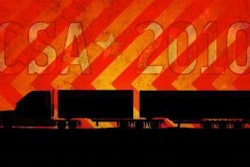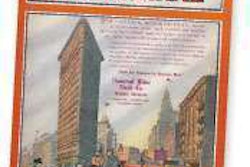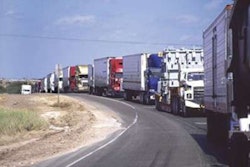Gaining strength

Thinking back to when business was even more difficult than today may not provide much consolation. But as successful leaders prove time and again, even the toughest business environments hold many opportunities in disguise.
In 1970, Robert Low founded Prime Inc. By 1980, the Springfield, Mo.-based truckload carrier had doubled its growth every year and had annual revenues of $50 million.
But by 1981, the economy was mired in recession, unemployment was in double digits, interest rates were more than 20 percent, and the trucking industry was overflowing with capacity following deregulation.
Prime entered Chapter 11 bankruptcy in 1981. Today, Low comically refers to a 3½-year span between 1981 and 1985 as the “The Dark Ages” for Prime. Business was so bad that if Low’s mother had not invested all $50,000 of her retirement and home equity into the company in 1985 — against her son’s advice — the company may not have survived.
“She put it in anyway,” Low says. “It is pretty amazing that we made it.”
Low says Prime’s culture has evolved from the bankruptcy. “Before bankruptcy, it was more like ‘I’ and not about ‘us.’ ” People are the company’s greatest asset, he says, and a new company policy was created: Do your best, do what is right and treat others the way you want to be treated.
“We try to pay people the best we can,” Low says. “We treat people like family.”
Reward your people, and they will reward you with loyalty.
As part of realigning its business model, Prime converted its fleet to independent contractors and began adding new amenities to keep and reward its top performers.
In January 2000, Prime opened a 40,000-square-foot “Millennium” complex. The amenities include a fitness center with basketball gym, spa and massage therapist. The complex also provides childcare with a learning center and dance classes. Employees have access to an onsite physician, upscale dining and a chapel, among other benefits.
The company’s network is its second-most valuable asset, Low says. “We pay a lot of attention to where we are going, what we do and where we go next.”
Prime currently operates more than 4,100 power units and hauls in more than $860 million in revenue annually with an operating ratio (OR) in the mid to high 80s and a debt-to-equity ratio of 0.25, Low says.
Southeastern Freight Lines has used the present recession to strengthen its culture and create dividends now and in years to come. The Lexington, S.C.-based company belongs to an elite group of carriers that has not made any layoffs in the past two years – or at any time in its history, says Russ Burleson, chief financial officer.
As a less-than-truckload carrier, SEFL is fighting the same battles as everyone else with lower shipment volumes, lower yields from pricing pressures and evaporation of fuel surcharge revenue.
The decision not to lay off employees isn’t a formal company policy, as the company must do whatever it takes to stay strong financially. But Burleson sees clear benefits to its actions to date. “We believe it does so much for our culture. It really pays in the long run.”
Employees are intensely loyal and have translated that loyalty into action by driving customer service and efficiency to record levels, Burleson says. “We are serving customers and keeping costs very low.”
On-time transit time is 99.2 percent, claims ratio is 0.62 and invoice accuracy is above 99 percent. The company’s OR is 99.71, whereas a lot of competitors are more than 100 even after making layoffs, suspending 401(k) matches and cutting wages.
“We did none of those,” Burleson says. “At the same time, we kept people working enough hours to make a decent living.”
The company’s culture and quality improvement process — both refined during the recession — are its most important strategies, Burleson says. “When capacity issues go away and pricing starts to firm, we believe we are poised to succeed in our region.” n









